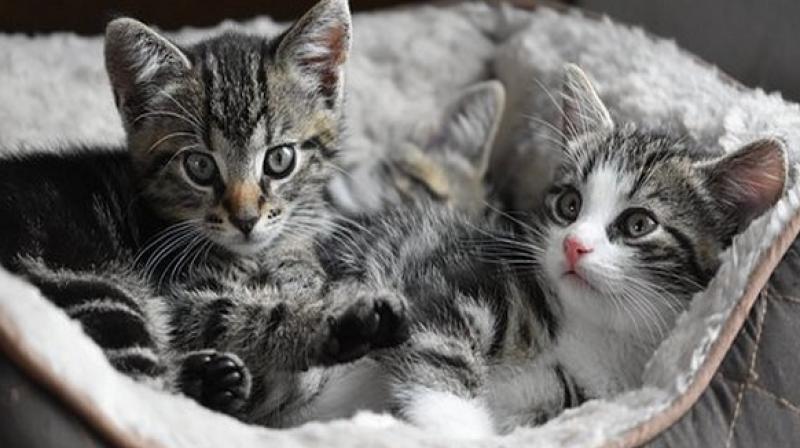Weight creeps in cats as they start growing older
Studies reveal that cats continue to put on weight as they age.

Washington: Here is interesting information for cat owners, according to a recent study, even after cats mature from the kitten phase; their weight still creeps up until they are, on average, eight years old.
According to the team of researchers, until now, pet owners and veterinarians didn't know for sure. Now University of Guelph researchers has become the first to access data on more than 19 million cats to get a picture of typical weight gain and loss over their lifetimes.
The findings, published in the Journal of the American Veterinary Medical Association, reveal that even after cats mature from the kitten phase, their weight still creeps up until they are, on average, eight years old. Researchers suggest that the latest findings provide important baseline information for vets and pet owners about cat weight changes.
"As humans, we know we need to strive to maintain a healthy weight, but for cats, there has not been a clear definition of what that is. We simply didn't have the data. Establishing the pattern of cat weights over their lifetimes provides us with important clues about their health," Theresa Bernardo, the IDEXX Chair in Emerging Technologies and Bond-Centered Animal Healthcare asserted.
As part of the study, the team of researchers analyzed 54 million weight measurements taken at vets' offices on 19 million cats as part of his Ph.D. research. The research team broke down the data to stratify any differences over gender, neutering status, and breed.
They found male cats tended to reach higher weight peaks than females and spayed or neutered cats tended to be heavier than unaltered cats. Among the four most common purebred breeds (Siamese, Persian, Himalayan and Maine Coon), the mean weight peaked between six and 10 years of age. Among common domestic cats, it peaked at eight years.
As well, the team noted that the mean weight of neutered, eight-year-old domestic cats increased between 1995 and 2005 but remained steady between 2005 and 2015.
"We do have concerns with obesity in middle age, because we know that can lead to diseases for cats, such as diabetes, heart disease, osteoarthritis, and cancer," said Adam Campigotto, lead author of the study, published in the Journal of the American Veterinary Medical Association.
The team noted that 52 per cent of the cats among the study group had only one bodyweight measurement on file, which may suggest their owners did not bring the animals back in for regular vet checkups or took them to a different veterinary clinic.
Researchers suggest that discussions about body weight throughout a pet's lifetime could be a useful gateway for veterinarians to engage more cat owners in the health of their pets, she added.

